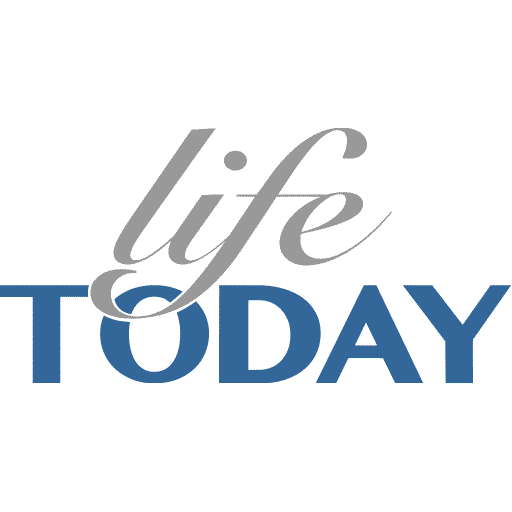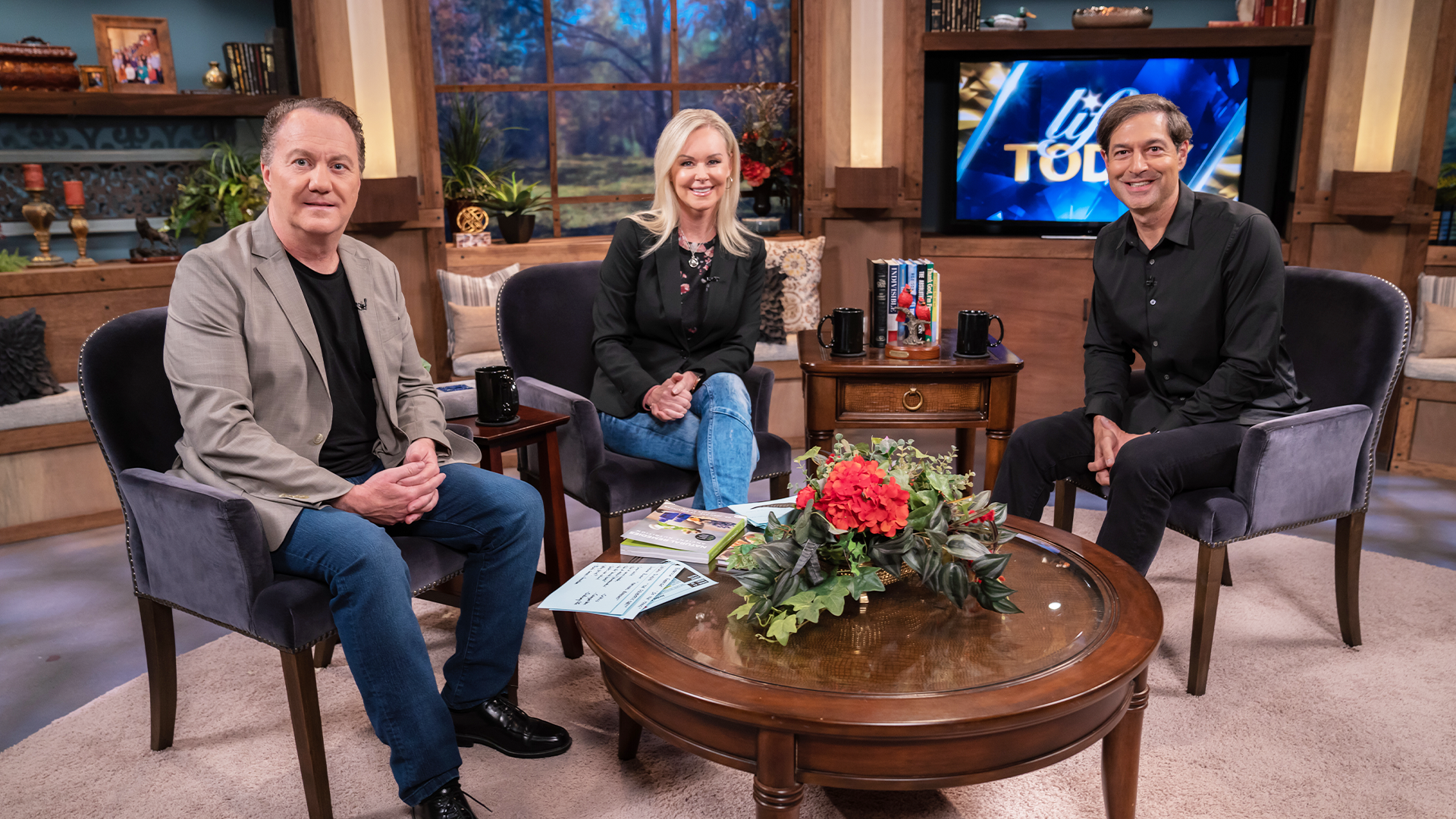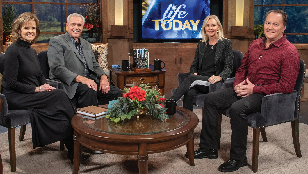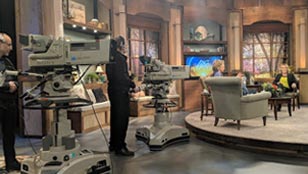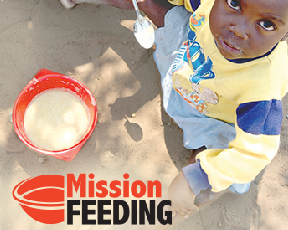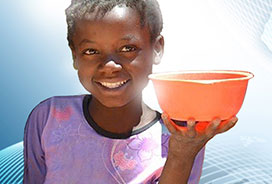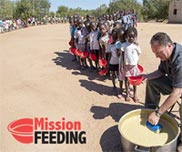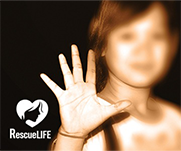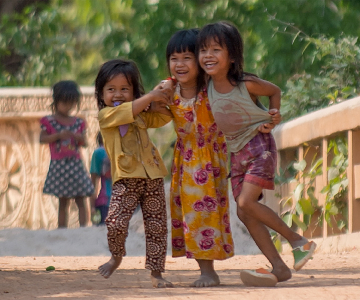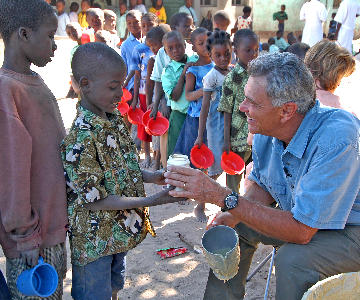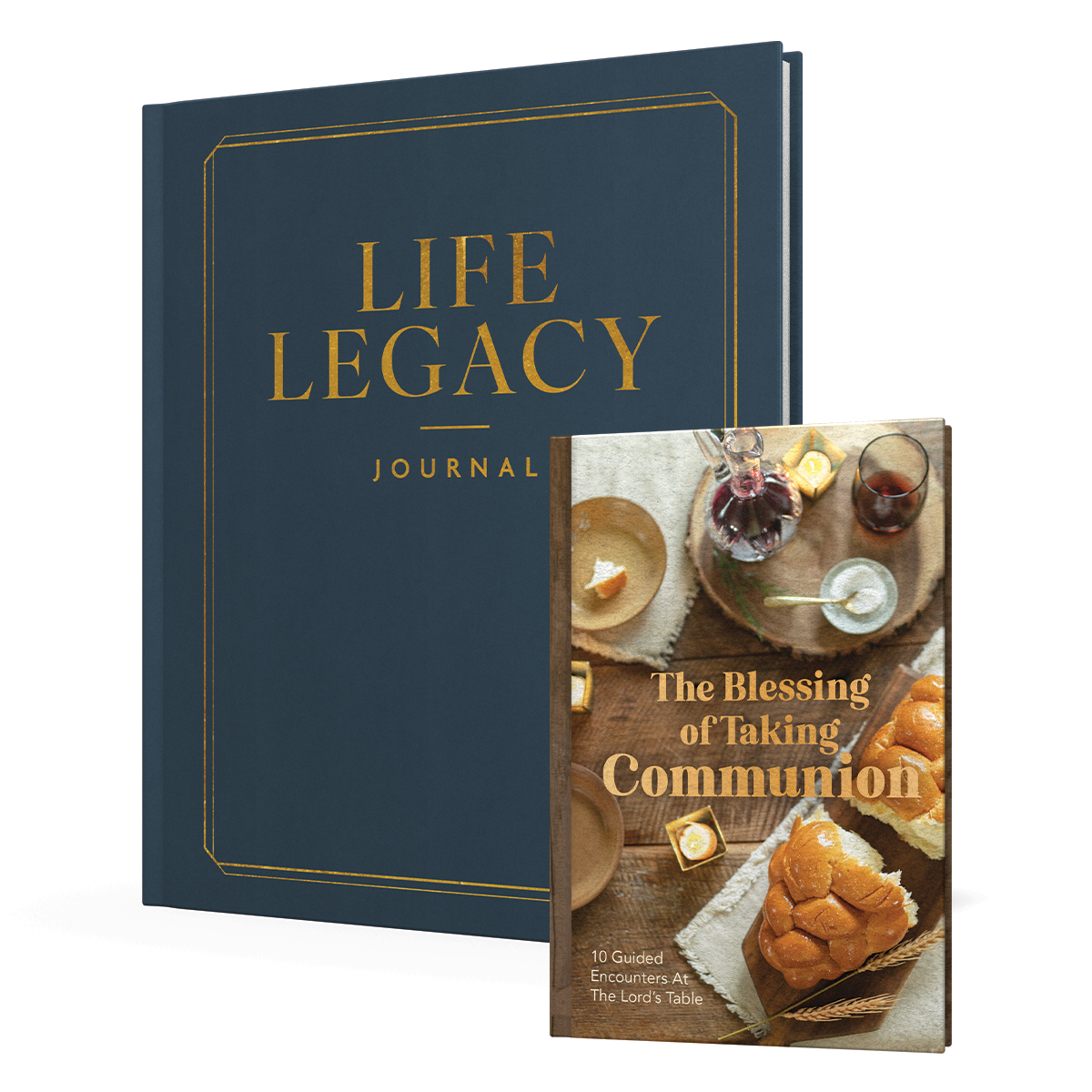Just before school started up for [our son] James in the late summer of 2013, we crawled into bed early one night. It had been a full few weeks since Katherine had the painful screws from her broken leg surgery removed, and we had just returned from a wonderful weekend of ministry and reuniting with old friends. We were tired in the best way, and sleep came easily as the fan softly whirred overhead.
My next conscious moment came in disjointed flashes as my brain frantically tried to contextualize dreams with reality, sound with sight. I don’t remember even turning on the light or getting out of bed — just standing above Katherine as she lay face down in the corner of our bedroom, legs splayed out unnaturally, wrapped in our bed sheets, her head jammed between the bedside table and the wall.
I gingerly wrapped my arms around her torso and carefully lifted her up. As I turned her toward me, I saw that her face was covered in blood. My measured tone belied my quivering nerves as I surmised that the source of the blood seemed to be her “good” eye. I helped her up and calmed her. Then I quickly ascertained that the wound was on her eyebrow bone, not in her eye. Thank you, Lord! But when the gash opened and I could see the bone like a ravine through her flesh, I briskly walked to the bathroom, as I felt I might pass out. I splashed some cold water on my face, took a few deep breaths, and then jumped back into the bloody fray, bringing ice and towels and a single Band-Aid, which was almost comical.
Katherine began to weep at the thought of waking James and shuttling him to our neighbor’s house for an impromptu sleepover. The ripple effects of her medical issues on our family were always deeply troubling to her. I somehow convinced her to come with me to the ER, as James would actually love the midnight, bed-swapping adventure, and my subpar sewing and stitching skills were likely to give her a Spock-like, permanently raised eyebrow.
We made it to UCLA’s ER in no time at that late hour, quickly traversing the usually busy interstate. Going to this particular place might make a normal person’s pulse quicken and stomach flutter, but for us, going to a hospital felt strangely like going home. It was a place where we found safety and health over the course of many years. We had been to a dozen different specialists at UCLA, so the place had a comforting quality for us. And if the worst thing happened, as it had at points in the past, we knew we would be well taken care of there.
The waiting room was dimly lit and quiet, save for a few disheveled inhabitants. Surprisingly we made it to an examination room within a half hour. When the on-call doctor arrived, I took the lead, explaining Katherine’s history and what I ascertained had happened. My perceived forcefulness, as well as an ill-timed joke from Katherine about me pushing her out of bed, resulted in the doctor asking me to step outside of the room.
For a moment, I felt slapped in the face. I was the one who got woken up from a dead sleep for an ER visit, and now the insinuation was that I might be to blame! I realized that such precautions are founded in real threats and that even people who are innocent must be subjected to the same scrutiny as those who are guilty, all for the greater good. My heart suddenly broke for those women forcibly brought to that same ER by men who didn’t feel the same unstoppable goodwill for them that I felt for my wife.
When I reentered the exam room, Katherine was engaged in conversation with the nurse and doctor, both of whom were amazed at her post-stroke recovery. These were opportunities our story gave us to personify intangible hope in flesh and bone. We gave our Hope Heals cards to these new hearers and directed them on how to find our short film.
“I might cry,” the nurse lamented.
“Maybe,” Katherine said. “But wait for the end. It’s the best part — the hopeful part.”
As they began stitching back together the broken place, I instinctively turned on our iPod and began rubbing Katherine’s feet to distract her. A song called “Beautiful Things” by Christian husband-and-wife band, Gungor, came on.
Catherine told the doctor, “We’re Christians, in case you couldn’t tell by the music. Is it okay if we play this?”
The doctor replied, “As long as it’s not hate-filled — of course you may. I want you to be comfortable.”
The lyrics warmed the cold room, speaking of hope and beauty birthed from chaos and dust. It was a welcome distraction and a reminder that broken places were being mended all around. The song ended, and the doctor whispered, “That was beautiful.”
After Catherine’s eyebrow was redesigned with a row of stitches spanning nearly its full length, we drove home around 3:00 a.m. on the even quieter interstate. We pulled through an all-night drive-thru for an ice cream cone to share. When we settled back into bed, sleep did not come as easily as it had much earlier that night. I wrapped my arm over Katherine with a steely, seatbelt-like resolve — not the most comfortable position but perhaps the most comforting for us both.
We knew all too well that no single one of us knows what tomorrow holds or even what the night holds, for that matter. It is unnatural, against every animal instinct in us, to release ourselves into that reality; but God calls us there — to the place of surrender where He invites us to rest, secure in arms more capable and more loving than our own.
That night was not our last hospital visit, nor was it the last time we fell asleep holding each other tightly. That late-night visit to the ER challenged us to sit with the question of suffering and to consider deeply. As our ministry and connections to more hurting people grew, we continued to find that sacrifice is the central theme of love and faith, and we asked ourselves how they all connected. What if the good resulting from our pain inured not to our own benefit but to the benefit of strangers?
We were seeing humanity with different eyes as we recognized that we were being asked to sacrifice things we held dear so that someone else, perhaps someone we would never know, might find the hope they need. Were we willing to lie down on altars or hospital beds, enduring all manner of loss, so that something truly lost might be found, so that a prodigal might become a beloved child? It became clearer and clearer that this was our calling — to play our role in divine appointments, to be vessels overflowing with hope for a greater good than just our own.
Katherine and Jay Wolf join James and Betty this Thursday on LIFE TODAY. This is an excerpt from Hope Heals by Katherine and Jay Wolf. Copyright ©2016 by Katherine and Jay Wolf. Published by Zondervan. Used by permission.
